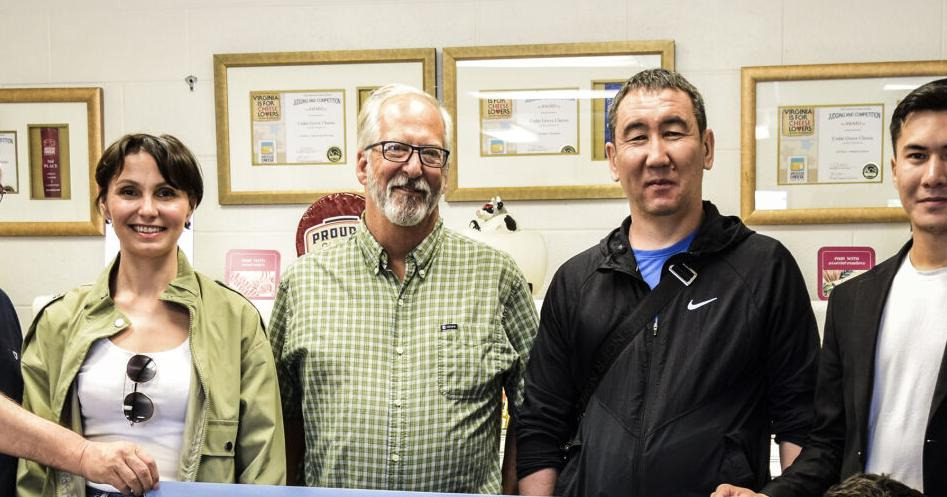A group from the Kyrgyzstan Dairy Union recently visited Wisconsin with a mission of learning how to improve their farming as well as dairy-processing practices. They also were interested in future export opportunities, said Syimyk Taichabarov, the organization’s executive director.
Helping them to fulfill their mission was Karen Nielsen, owner of Global Dairy Outreach of Madison, Wisconsin. She specializes in creating and organizing customized and practical training programs and study tours for dairy farmers and processors.
Nielsen developed a tour of cheese plants and farms for the group; the first tour stop was at Cedar Grove Cheese near Plain. There they met with Bob Wills, the company’s president, and Dan Smith, CEO of Cooperative Network.
Wills discussed the importance of good milk quality, from farm to cheese vat. He also talked about Wisconsin’s dairy-processor grants that help companies address food safety, such as tracking and keeping records on milk trucks and tanks. He purchases milk from about 30 area farms. Most of the cheese that Cedar Grove Cheese produces is sold within the United States but some also is sold to buyers in Canada and Mexico.
Members of the Kyrgyzstan group said they’re interested in expanding cheese exports. That’s because Russia, which had been one of Kyrgyzstan’s major markets, has restricted trade to just four Kyrgyzstan processors, said Mariia Rakhmanova, director of Kyrgyzstan engineering company Agralis KG. A subsidiary of Agralis GmbH of Oelde, Germany, Agralis KG specializes in training and consulting services as well as supplying equipment to farmers and processors.
Russia’s Federal Service for Veterinary and Phytosanitary Supervision – Rossselhoznadzor – in April 2023 restricted dairy products from Kyrgyzstan, according to a report by Dairy Global. The Russian agency claimed an inspection uncovered violations of veterinary rules and that goods couldn’t be considered safe. But Kyrgyzstan dairy companies interviewed by the Russian publication Dairy News claimed Russian authorities used the claims as an excuse to protect their domestic market.
Politics also likely plays a part, Rakhmanova said.
Taichabarov said, “We’re trying to improve our milk quality and our goal is to export to new markets.”
The Kyrgyzstan Dairy Union group is meeting with potential customers in a few Asian countries, he said. And it has a small market in the Chicagoland area for Chalap Shoro, a beverage made from fermented milk.
The group talked with Smith about cooperatives and cooperative structure in the United States. Group members explained that the general public in their country associates “cooperatives” with the collective farm model of the former Soviet Union.
“That’s when workers were exploited and profits went to the state, not the workers,” Smith said. “I told them they were in the perfect spot to learn about cooperatives in the United States because Wisconsin and Minnesota have more cooperatives than anywhere else in the country. Agricultural cooperatives deal with perishable products that need to be marketed, and inputs and services that are needed.”
American farmers can belong to more than one cooperative – such as a financial cooperative, a farm cooperative, an electric cooperative or a healthcare cooperative. Cooperatives were formed and still exist because they meet emerging needs, he said. They’ve evolved to where there’s now discussion about them providing child care, elder care and housing as well as food to alleviate food deserts. A cooperatives is governed by a board that hires a CEO or a manager. That person reports to the board, not the other way around. The board makes the decisions regarding patronage or whether to retain profits for equipment or staff salaries.
Kyrgyzstan-group members said they learned U.S. cooperatives run and succeed because of the energy and personal responsibility of members.
Source : Agupdate


